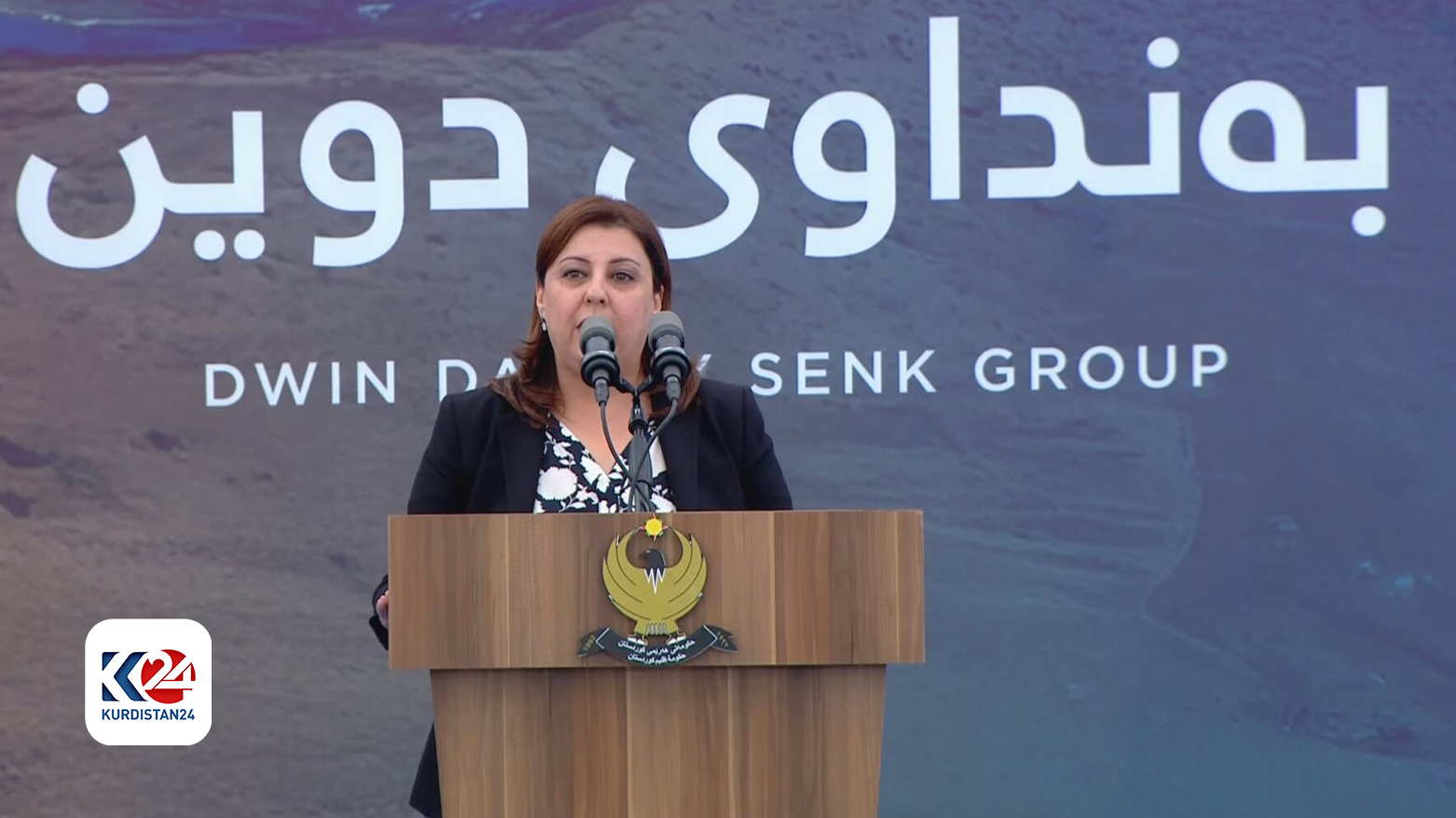Dwin Dam a strategic project with multiple benefits, says KRG Minister
The Minister underscored the dam's potential to boost various sectors, including tourism, agriculture, and fisheries, while also contributing to groundwater recharge.

ERBIL (Kurdistan 24) - Agriculture and Water Resources Minister Begard Talabani, speaking at the foundation stone laying ceremony of the Dwin Dam in Erbil province on Monday, highlighted the project's strategic significance and its multifaceted benefits.
Talabani emphasized that the Dwin Dam, located on the slopes of Dwin Mountain, holds historical, touristic, and economic importance.
The site, near the ancient Dwin Castle, was once a crucial hub connecting Erbil, Rawanduz, and Azerbaijan. It also boasts proximity to the popular tourist destination of Shaqlawa, attracting hundreds of thousands of visitors annually.
The Minister underscored the dam's potential to boost various sectors, including tourism, agriculture, and fisheries, while also contributing to groundwater recharge.
Reflecting on the challenges faced by previous administrations in dam construction, Talabani acknowledged that despite past efforts and investments, some projects were negatively impacted by rains and floods, resulting in losses for the Kurdistan Regional Government.
However, she proudly stated that under the ninth cabinet and with the Prime Minister's support, 10 dams with a capacity of over 160 million cubic meters will be completed by the end of the year.
The Minister also underscored that the total water storage in the Kurdistan Region currently exceeds 10 billion 122 million cubic meters of water, which is an important and strategic achievement not only for the Kurdistan Region, but also for other regions of central and southern Iraq.
Talabani also shared that the Goma Span Dam, the third-largest in the Kurdistan Region, will soon be inaugurated. This project, she stated, will be a crucial asset for tourism, agriculture, and horticulture in Erbil province.
In conclusion, the Dwin Dam project represents a significant step forward in the Kurdistan Region's efforts to enhance water security, promote sustainable development, and capitalize on its natural and historical resources.